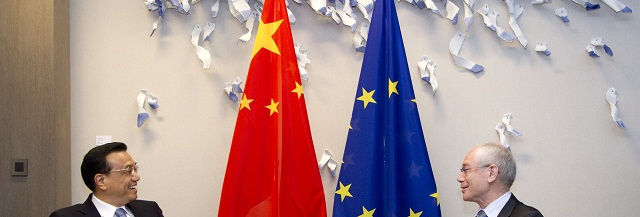“Europe is trying to woo Asia,” claims French financial daily Les Echos, referring to the 9th Asia-Europe Summit (ASEM) meeting on November 5-6 in Vientiane, the capital of Laos. Some fifty leaders from the two continents are scheduled to attend. The meeting is held bi-annually and aims to increasing trade links between the two regions which, together, equal half of global GDP.
But the two partners are not meeting on a level playing field, notes Les Echos, because this time the summit gathers “a Europe overwhelmed by the debt crisis and an Asia that claims to be the motor of global growth.”
Les Echos stresses that “The EU is shamelessly ogling the some 3 billion dollars the Chinese hold in foreign exchange reserves – the highest in the world.” The paper further adds that “China has, in recent months, regularly bought bonds emitted by euro zone countries and by the European Financial Stability Facility (EFSF), while taking a close interest in the European Stability Mechanism (ESM) the future permanent Eurozone bailout fund.”
And even if during the summit, “European leaders will tell their Asian counterparts that the worst of the Eurozone crisis is over,” notes the Beijing-based English-language China Daily. The paper adds that “There were concerns by many Asian countries, especially China, that the European Union would press them to buy European government bonds and contribute to the safety net for the euro. But Europe understands that Asian governments will only buy debt when they are confident of the returns. In these circumstances, one cannot expect too much from ASEM. The imminent changes in political leadership in several Asian countries will also affect the meeting. […]This means that EU-Asia relations will be on a holding pattern for some time. ASEM is also not the venue to expect new initiatives. It is simply too big and only meets every two years. Smaller groupings such as the G20 now are more likely to guide the global economy.”
The European diplomatic offensive is seen “as a sign of the growing importance that debt-laden Europe places on Asia's fast-growing economies, and its desire to counter increased US engagement in the region,” says English-language Thai daily The Bangkok Post.
Among other issues to be raised, the Post notes that “Asian officials for their part are expected to press Europe to take swift action to calm a crisis that has battered the world economy and set back efforts to reduce global poverty.”

In partnership with presseurop.eu, source.





